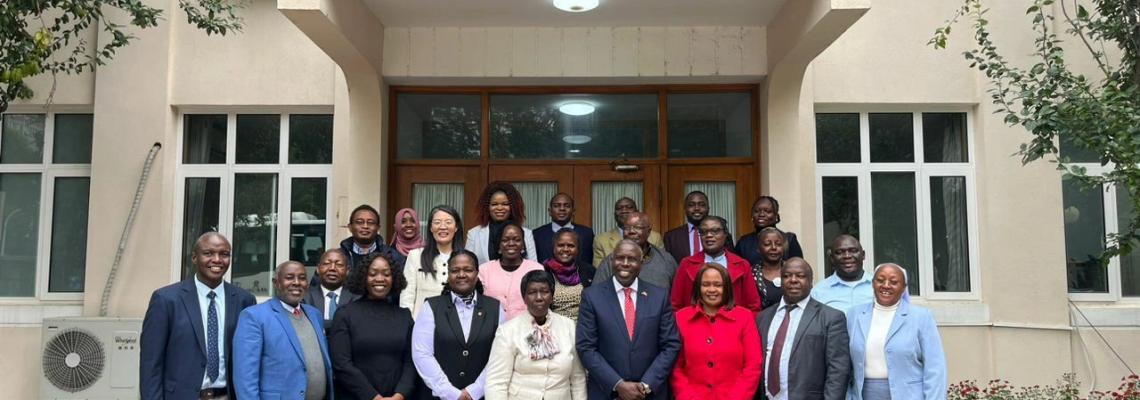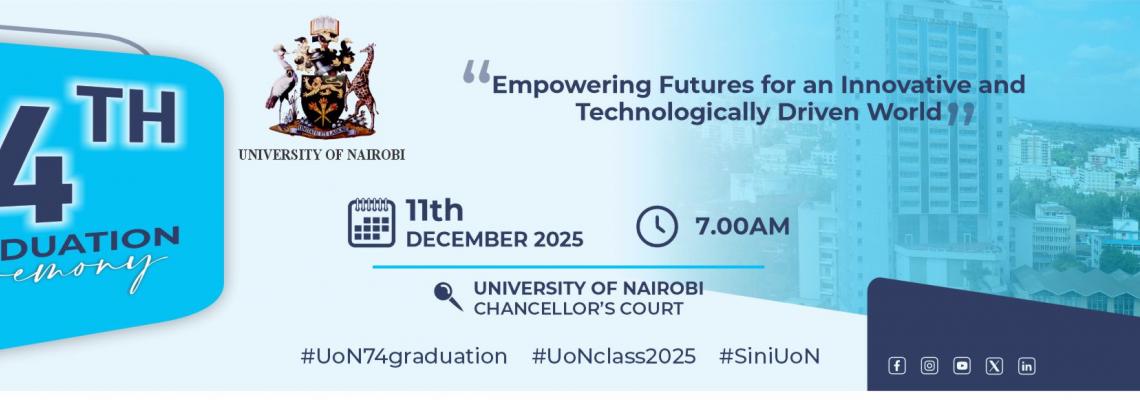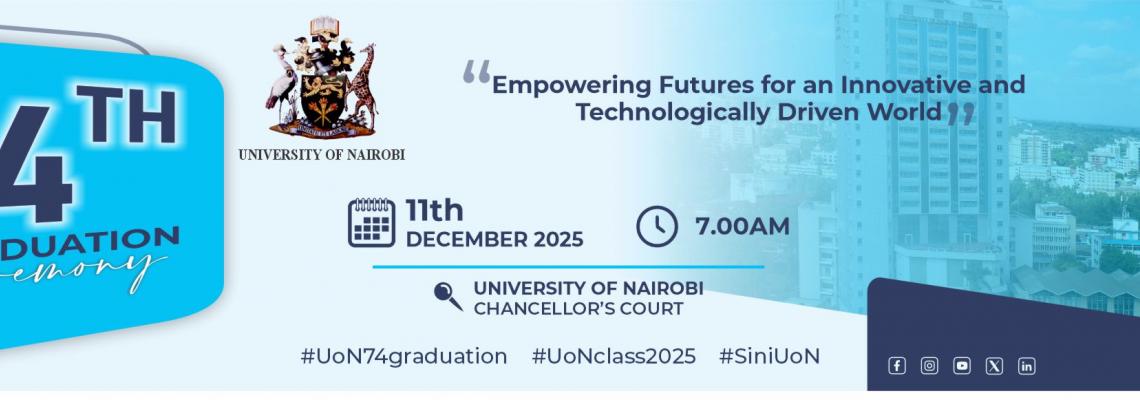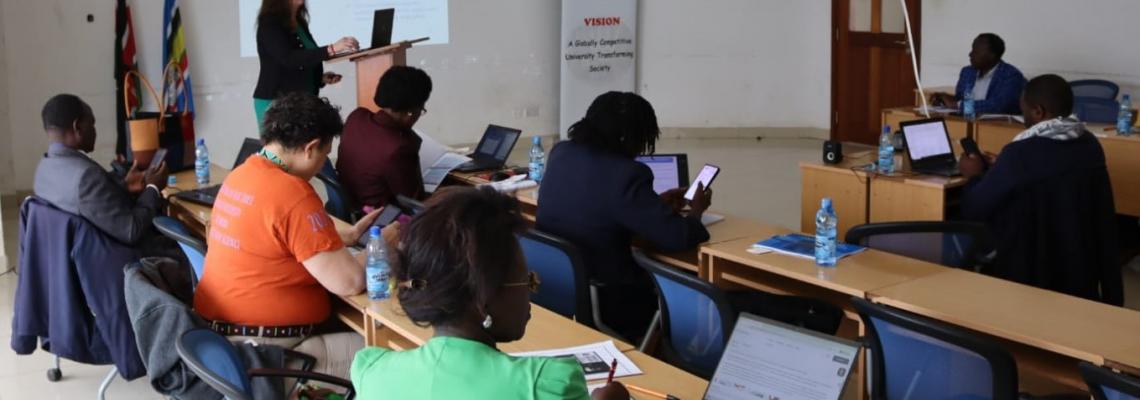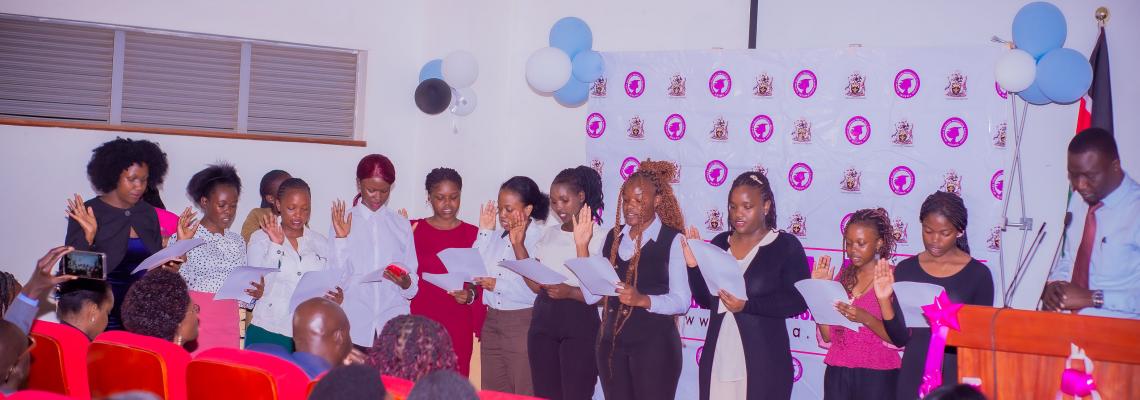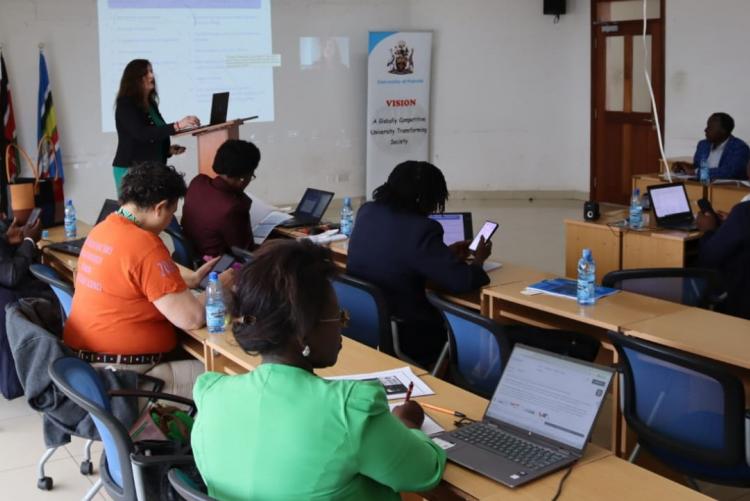NAIROBI, KENYA—October 27th 2025
INTERNATIONAL CONFERENCE ON: ‘CONTEMPORARY ISSUES IN VICTIMOLOGY, VICTIM ASSISTANCE AND CRIME PREVENTION’
The global fight against crime prevention and violence across board in various spaces has led to rethinking of effective victim support and mitigation strategies as a subject of interrogation among scholars and practitioners. This discourse entered a critical phase during the University of Nairobi Research Week (9th Edition) which took place at the University of Nairobi from 21st- 24th October 2025.
The 8th Annual high impact conference on ‘Contemporary Issues in Victimology, Victim Assistance and Crime Prevention, held from October 23rd to 24th, 2025 with the theme: ‘Use of Digital Technology to Enhance Crime Prevention and Victim Support’ underscored the importance of engaging various stakeholders on issues of victimology, victim support and crime prevention. Hosted in collaboration with Ahmadu Bello University, Kaduna State, Nigeria and Kibabii University, Bungoma County, Kenya, the two-day conference brought together a multidisciplinary roster of criminologists, psychologists, legal experts, technology innovators, media experts and policymakers and other scholars from International, Africa, and partner institutions and organizations together. The central message was a resounding call to aggressively leverage digital tools—from Artificial Intelligence (AI) to mobile apps—while simultaneously safeguarding victims' privacy and ensuring ethical application.
The Dean of Education represented by, Prof. Anne Nderitu the Associate Dean noted the pleasure the Faculty in hosting the Conference. ‘I am pleased that our Faculty is hosting this vital event in an era where issues like crime, suicide, rape and other vices are rampant in our institutions. The theme i: ‘Use of Digital Technology to Enhance Crime Prevention and Victim Support. ‘Resonates to what affects us as an institution. The researchers and other presentations are quite relevant to our institutional policy and philosophies on safe keeping of clients and the wider community
We thank our distinguished speakers, led by Chief Guest Prof. Janice Joseph, who is a Distinguished Professor of Criminal Justice at University of Stockton, New Jersey, USA. Other Keynote speakers for the two days were as follows:
- Ms. Nina Hanssen, Norwegian Award winning Journalist, Author and Criminal Justice Advocate, Norway
- Prof. Binta Abdul Rehman - Co-Host, Ahmadu Bello University, Zaria, Nigeria
- Prof. Inna Koblianska-Associate Professor, Sumy State University, Ukraine
- Prof Pam Raburu- Associate Prof. JOOUST, Kenya and Gender Expert and Multidisciplinary researcher
- Jaramogi Oginga Odinga University of Science and Technology, Bondo, Kenya
- Dr. Helen Sang - Associate Prof. Expert Curriculum & Instruction and Gender Issues
- University of Kabianga,
- Ritta Mazzocchiv -Tangaza University, Kenya Key note speaker (via whatspp)
- Dr. Rispah Namasaka Wepukhul-Co-Host Senior Lecturer and Director, Institute of Gender and Development Studies., Kibabii University, Kenya
- Dr. Martha R. L. Muhwezi, Executive Director / Directrice Exécutive, Forum for African Women Educationalists / Forum des éducatrices Africaines (FAWE)
- Dr. Edris Omondi(Honoris Causa)-Crime Prevention Initiative Trust
- Rev Dr. Charles Oloo K’Ochiel (PhD), Catholic Priest and a Canon, lawyer Kenya
With great pride, we affirm the success of the conference that linked Research to practice and espoused on how Innovation and technology is shaping crime prevention and victim support in various spheres. The deliberations on issues like femicide, prison reforms, abuses and violence in various spaces received a lot of attention from the presenters and participants. Prof. Anne Aseey, Chair, Dept. of Edu, Distance Studies and conference chair appreciated the deliberations and on how "The digital age has unfortunately birthed new forms of victimisation, from sophisticated cyber fraud to the weaponization of social media and deepfakes," She further stated that “Our conference focus is to flip that script: to make technology the most powerful tool in the arsenal of prevention and recovery."
Delegates scrutinized the use of AI algorithms to identify high-risk areas and individuals prone to victimisation. A major debate centered on ensuring these tools are free from the bias present in historical crime data, preventing discriminatory policing against vulnerable communities. Prof. Binta Abdulkarim from Bello University in Zaria, Nigeria, emphasized the need for community engagement to validate AI models. Her roles directing the Institute for Development Research & Training and coordinating the Gender Policy Unit bring unique insight.
A major focus was on shortening the time between a crime and a victim receiving help. Dr.Antonine Obiero: We need a robust and truly inclusive framework to combat Gender-Based Violence(GBV).This means prioritizing diverse voices, strong accountability, and survivor-centered support for all victims. The development of encrypted mobile applications designed for anonymous, instant reporting and immediate linkage to psychological support hotlines, legal aid, and police resources. These apps aim to bypass traditional bureaucratic hurdles and provide a "digital safe space" for survivors of gender-based violence (GBV) and domestic absorptions.
Ms. Rita Mazzocchi of Tangaza University explores digital crime prevention through Pope Francis' Fratelli Tutti. The call for a theology of data justice is urgent, especially in Eritrea. How can digital tools promote fraternity and prevent injustice? Given the rise of online scams and misinformation, she dedicated a session to the use of digital forensic tools for tracking perpetrators of cybercrime, fraud, and impersonation. A particularly chilling presentation on "deepfakes" highlighted the immediate need for legislation and technology to verify identity and authenticity, thereby protecting victims of online defamation and exploitation.
Several sessions stressed that one of the most effective crime prevention tools is public education. Speakers advocated for massive governmental and academic investment in digital literacy programs, especially targeting vulnerable groups like the elderly and rural populations, to inoculate them against phishing, online financial fraud, and exploitation schemes. Fascinating perspective! Berina Winny Chepoisho, Advocate Trainee also explored Faith as a Catalyst for Societal Transformation and Victim Prevention. How can belief systems actively drive change and enhance community safety?
Prof. Pamela A. Raburu, Incest and gender based violence are a devastating crisis, not isolated events, they shatter mental health, destroy family bonds, and perpetuate trauma cycles. We must move beyond silence to robust, victim centered support and accountability. Compelling insights from Nina Hanssen on Prison Reforms! The Norwegian model (Principle of Normality, Dynamic Security) proves that focusing on rehabilitation over sheer punishment leads to better outcomes and lower recidivism
The conference concluded with prison visit to Langata Women’s Maximum Security prison-Langata, Nairobi with a consensus that the future of victimology lies in a blended and practical approach. The visit was an eye opener to the 50 conference participants and more so the Students (GenZs as they were referred to by prison officers) had an everlasting life experience on prison activities and reforms. Still, despite frequent and affective use technology, it was noted that it may not be able to replace human connections in crime and victim support issues.
On stakeholder engagement and collaborations, the conference success was realized through collaborative partners, like Ahmadu Bello University, Nigeria, Kibabii university, Kenya and other institutions and organizations nationally and internationally. The spirit of collegiality has helped the University play its critical role in research and innovation and in knowledge transfer and dissemination. This has also enabled the University play its role as a regional hub for solutions-driven research that impact on the society.
as the research and innovation week drew to a close, the commitment was clear: the insights gained from the focus on digital technology must rapidly move from academic journals to public policy and practice, ensuring that every citizen benefits from a digitally enhanced shield against crime and a more responsive support system in the event of victimization.
- Log in to post comments

